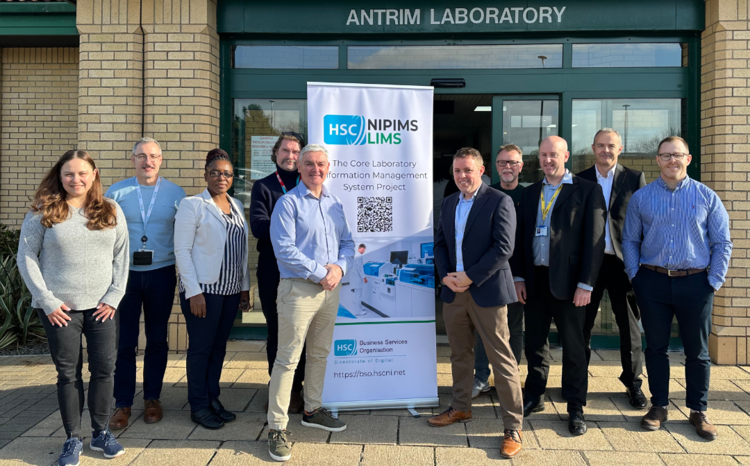IT, Minister
- 2 November 2010
It’s not every healthcare minister that gets to present an IT strategy for the NHS. Perhaps surprisingly, only two national strategies have been unveiled in the NHS’s history.
We’re now in the run-up to a third, which is expected early next year, following the consultation on the coalition government’s ‘information revolution’ document.
This means that, in the past 20 years, only two UK government ministers have stood up and presented a new NHS-wide IT strategy to the public (or, at least, to the sub-set of the public who attend such events).
One of them was Conservative Tom Sackville. He has a blunt message for his ministerial successors: "Do not trust your civil servants."
Sackville recalls his three years as a junior health minister when Virginia Bottomley was John Major’s secretary of state for health as a continual battle with the centralising instincts of departmental officials – especially the IT experts.
"I had the impression that officials were scrabbling to produce anything they could call a central IT plan, even though the bad news from Wessex [the failed regional information systems programme] was there for all to see. They were absolutely determined to say they had a central strategy."
Heartsink time
Like most junior ministers in most modern governments, Sackville had little warning before he was catapulted into the health post. After serving in the whips office – the conventional launch pad for a ministerial job – he received the call from Number Ten asking him to go to health.
"What happens is that someone decides to give you a junior job, someone else decides to put you where. I very much doubt whether Mrs Bottomley [now Lady Bottomley] had much say in the matter," he says.
Sackville joined a department that was still, in theory, committed to driving through reforms needed to create an internal market of GP fundholders and trust hospitals, operating under a framework of regional and district health authorities.
His portfolio included the normal mixture of heartsink briefs allocated to junior ministers, including health authority mergers – and IT. "I landed IT because no one else wanted it. It was a bed of nails," he says. "None of us understood a word of it," he says.
Even so, Sackville found himself at the centre of an attempt to set up the first real NHS IT infrastructure. This was launched as the Information Management and Technology (IM&T) strategy at the National Motorcycle Museum in the Midlands at the end of 1992.
Everyone was in awe of the experts, he says, even though they had a nagging feeling that NHS thinking was out of step with the rest of the world.
"It was all very weird. All I knew was I couldn’t trust the officials because they were talking of big mainframe schemes when everyone else was going in to a very laptop world. I was shocked by the way they couldn’t say boo, how they wouldn’t argue."
Battling the civil service
Attempts to get fresh advice descended into farce. Sackville recalls having an experience "straight out of Yes Minister" when he put together a group of trust chairs to feed in to the policy process.
In Whitehall tradition, officials tried to attend the group’s meetings. "It was very unpleasant," he recalls. "I was made to feel guilty for wanting to talk to anyone but civil servants."
Inside the Department, trust chairmen were seen as the enemy, he says. One problem, from Sackville’s point of view, was waning enthusiasm for the market-based reforms.
The turning point, he says, came when Bottomley made trusts report to regional health authorities "knowing very well that RHAs would become an outpost of the civil service.”
In this climate, it was impossible to resist the efforts of the centralisers, he says. He admits to giving in on one decision, to create the contract clearing service. "I never really understood what it was."
Sackville’s recollections are uncannily similar to those of a Labour junior minister, Chris Mullin, who held a rag-bag portfolio in John Prescott’s department for the environment.
Mullin at one stage noted: "I live from hour to hour, never staying with any subject… long enough to learn anything useful, praying that I can retain just enough information from the briefing to enable myself to bluff my way through without humiliation. I am beginning to lose my identity. Who am I?"
Is the predicament inevitable? Sackville, who left Parliament in 1997 but is still involved on the health scene as chief executive of the London-based International Federation of Health Plans, says “yes” – so long as ministers are in awe of experts who come from a digigiste culture; and who may be too close to an industry seeking big contracts.
This, he feels, was the mind-set that culminated in the National Programme for IT in the NHS in England, which he describes as "The biggest government procurement fiasco since the [1940s East African] ground-nuts scheme.”
While times have changed, Sackville says that the same forces are at work, and need to be carefully watched. "If you allow your officials to interfere again, the health service will be further impoverished in information terms and further pushed into the dark ages.
“There is no way you’re going to have any success in central planning, it doesn’t work. Unless you let a hospital think it’s procured a system, it won’t work."
Leading the next revolution
Part of this task now lies with the current minister of state for health, Simon Burns, who portfolio includes responsibility for NHS Connecting for Health, the agency that runs the national programme.
Burns is no doubt familiar with the words of a former Cabinet secretary, Richard Wilson, who advised junior ministers to follow two golden rules: have a good relationship with their secretary of state (so that civil servants aren’t tempted to go over your head) and don’t try to change the world – just have two or three modest aims.
One complication that Burns faces is that he is working with a secretary of state who, for the first time in history, shows a strong interest in the information revolution.
It is significant that Andrew Lansley himself is hosting the Department’s 9 November web chat on the information revolution.
Traditionally, it is the prerogative of secretaries of state to grab the "good news" duties – the NHS IT world will be watching closely for any sign of the strategy being relegated to junior minister status.




